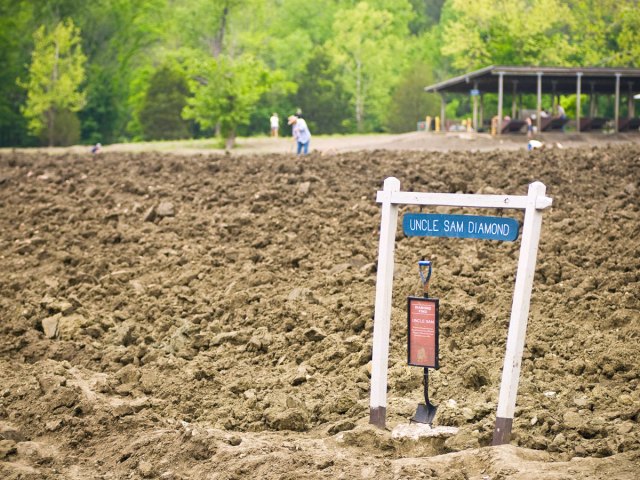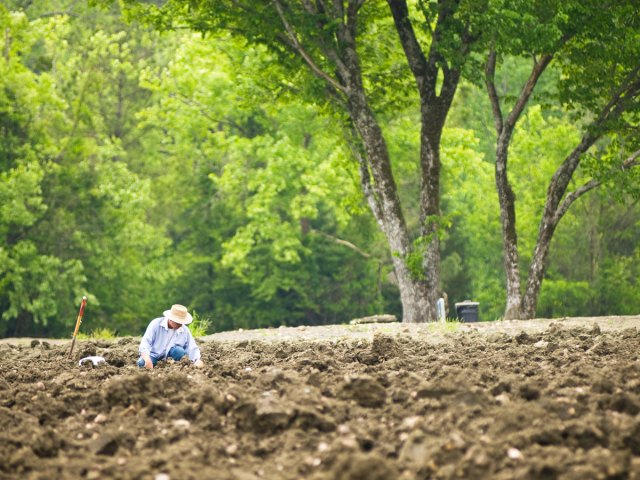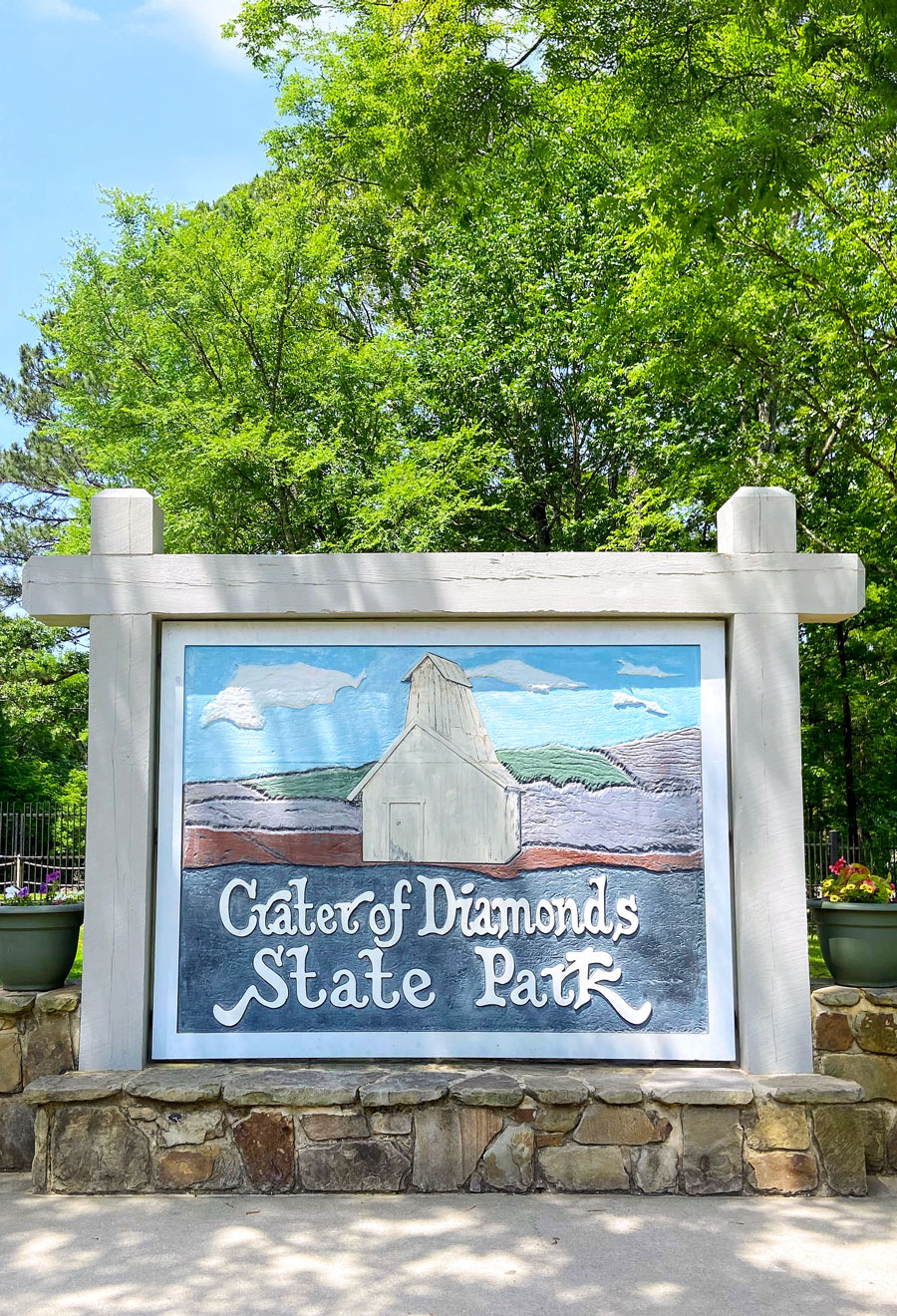There’s a small town in Arkansas that advertises diamonds for sale for just $15 each. It might sound too good to be true, but they’re the real deal — the only catch is that you have to hunt for them yourself. Murfreesboro is home to Crater of Diamonds State Park, formed by a volcanic eruption around 100 million years ago when diamonds that once crystallized deep in Earth’s mantle were blasted to the surface. Today, visitors can pay the modest $15 entrance fee to Crater of Diamonds State Park and dig for diamonds in the topsoil, keeping whatever they find. Here’s what you should know when you visit.
A Valuable History

In 1906, a farmer named John Huddleston found the first diamonds in the area, sparking an influx of eager treasure hunters hoping to strike it rich. The land was soon taken over by two rival mining companies, the Arkansas Diamond Company and the Ozark Diamond Mines Corporation. Over the years, it switched hands between private and public owners until the state of Arkansas purchased it in 1972 for $750,000 and opened a state park. Today, this 37-acre site is the world’s only public diamond mine, famous for its unique “finders keepers” policy.
Throughout the decades, Crater of Diamonds has drawn curious travelers from near and far and produced some record-breaking finds. The largest diamond ever discovered in the U.S. — the Uncle Sam Diamond, weighing an impressive 40.23 carats when found — was unearthed here in 1924. More recent discoveries include the 8.52-carat Esperanza Diamond, one of the most valuable gems ever found in America, uncovered in 2015, and the 3.03-carat Strawn-Wagner Diamond. The latter was found in 1990 and received a perfect rating from the American Gem Society.
Tips for Visiting Crater of Diamonds

In reality, finding a diamond at Crater of Diamonds State Park isn’t easy — but it’s definitely possible. Since it became a state park in 1972, more than 35,000 diamonds have been discovered; on average, at least one lucky visitor goes home with a (usually small) gem each day. With 150,000 to 170,000 visitors annually, that works out to about 1-in-465 odds of finding a diamond.
Your chances increase after a heavy rain or the park’s monthly plowing, which helps bring diamonds closer to the surface. Perhaps the best strategy, though, is to keep your expectations low and stay optimistic. Be prepared to spend hours digging, and you’ll likely leave with at least a few interesting rocks (and maybe even something more valuable). If you plan to time your visit right after a plow, be sure to arrive early in the day to sift through freshly turned soil before the crowds. Reservations aren’t required, and with your entry ticket you can search all day until the park closes.
It also pays to know what uncut diamonds look like, and the on-site Diamond Discovery Center is the perfect place to start. It offers geology lessons, diamond-hunting tips, and displays of the park’s minerals. While most of the diamonds here are white, brown, or yellow, you might also spot amethyst, garnet, jasper, agate, or quartz gems. Park staffers are always happy to identify your finds, give mining demos, and share the history of this fascinating park.
At the end of the day, whether or not you uncover a diamond, visiting Crater of Diamonds State Park is about the experience itself. Try your luck, learn about the land’s history, and explore a place that’s unlike anywhere else in America. It’s a rare opportunity to step into the shoes of a prospector and see what you might find in the world’s only public diamond mine.
Featured image credit: Ray Tan/ iStock via Getty Images Plus
More from our network
Daily Passport is part of Inbox Studio, an email-first media company. *Indicates a third-party property.
















